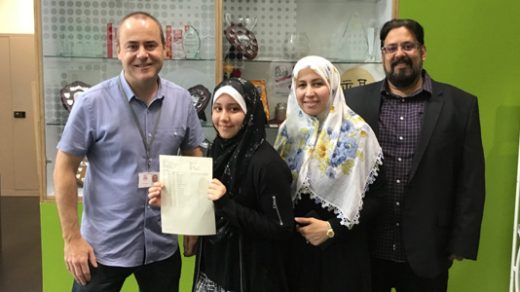Nearly half of new secondary students say maths isn’t challenging enough

New research suggests around 30,000 talented maths students are ‘disappearing’ from the school system between the ages of 11 and 16, with half of top-performing disadvantaged pupils being ‘lost’.
The findings indicate that top maths pupils in primary schools experience a significant decline in interest and attainment particularly during the transition to secondary school. This phenomenon is particularly pronounced among disadvantaged pupils.
Half of disadvantaged pupils who are top attainers in maths at the end of Year 6 don’t go on to get a Grade 7 or higher at GCSE.
This research has been carried out by Axiom Maths, a new charity offering to fund ‘Maths Champions’ in secondary schools to seize the critical window of opportunity as high-attainers start Year 7 and are at risk of falling off track.
These Maths Champions will work with Axiom Maths to implement a package of support for high-attainers, including weekly maths circles. In maths circles a small group of students will come together regularly with a mentor to grapple with intriguing questions, to explore exciting ideas, and to learn to think like mathematicians.
Axiom Maths has surveyed thousands of pupils and their families to try to identify why and when high attaining maths pupils are ‘lost’ as they progress through their education.
The study, which surveyed 2,000 pupils in Years 6-9, found that when high-attaining primary pupils transition into secondary school they become:
- 25% less likely to say maths is fun
- 40% more likely to say maths is not challenging enough
- Twice as likely to say maths is boring
Axiom Maths said these children are missing out on a £500,000 lifetime earnings premium, compared to those who continue studying maths to a high level with an additional significant impact on the UK economy.
The number of pupils who are ‘lost’ is almost double the number of vacancies for STEM related jobs in England, which currently stands at 16,000 according to new analysis of government statistics, but is estimated to grow. The overall cost to the UK economy of a STEM skills gap is estimated to be at least £1.5 billion per year.
David Thomas, CEO of Axiom Maths, former maths teacher, secondary headteacher and Department for Education adviser, said: “There’s a crucial window of opportunity to stop young talent slipping through the net in Years 7 and 8.
“We’re finding and nurturing these young people, providing a like-minded social group and an exciting experience of maths. The aim is to make them feel special and valued at an uneasy time of transition, exciting them about the boundless places their talent can take them.
“Let’s be straight with young people – maths isn’t always easy but it is hugely rewarding for those who persist. We want to change the national perception of maths from being treated as a subject people ‘celebrate’ being bad at, to being seen as the SAS of subjects that unlocks the future, opening up opportunities in AI and the jobs of the future.
“The future success of our economy hinges on developing this talent to address the STEM skills shortage and to ensure the UK’s competitiveness on the global stage. Maths can give us a unique power. We’re here to help young mathematicians master that power, as we simply can’t afford to ‘lose’ them.”
Dame Rachel de Souza DBE, Children’s Commissioner for England, said: “As Children’s Commissioner, I am clear that we cannot allow pupils who are doing well in such an important subject as maths to lose momentum as they progress through their school careers.
“We know our young people have so much talent and we must match that by providing all the opportunities we can for them to achieve their dreams. This new research will hopefully pinpoint how we can keep pupils engaged in maths which is so vital for the careers of the future.”
Kathryn Greenhalgh, executive director of Mathematics for Outwood Grange Academies Trust, chair of the National Maths Hub Council and Axiom Maths trustee, said: “The fact is we should not be letting any maths pupil ‘go missing’.
“We need to urgently look at the findings and pinpoint what factors contribute to that drop-off when some promising primary maths students get into their secondary schools.
“I really welcome Axiom’s offer to directly fund ‘maths champions’. This is so exciting. Schools can easily apply to be one of the first adopters to get their package of support. The maths champions will identify and nurture student talent we already have within schools and encourage them to stick at it and aim high.”
Axiom Maths is inviting schools to sign up for a fully funded maths enrichment programme for high-attaining secondary students. Secondary schools can receive a significant financial boost of nearly £3,000 per academic year. This funding will enable schools to allocate resources towards teaching and learning responsibility (TLR) payments or a timetable reduction for a Maths Champion.







